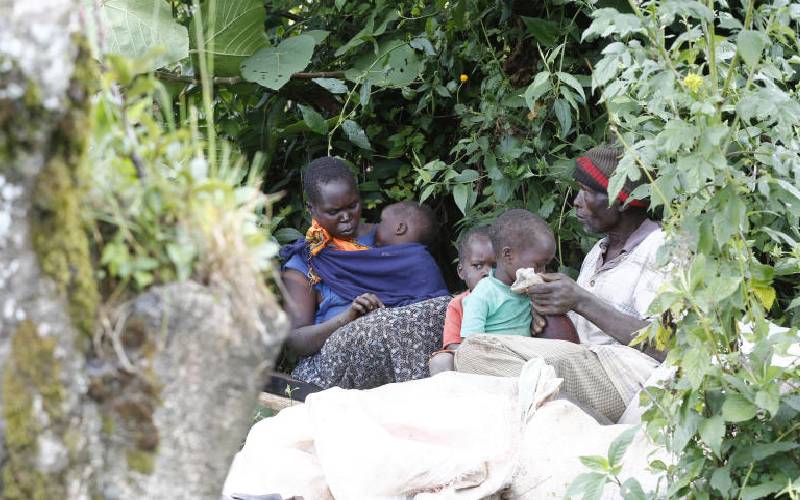×
The Standard e-Paper
Kenya’s Boldest Voice

A family that were displaced from Mau Forest resting at the road side on July 20, 2018. [Photo, File]
Evicted from their homes July last year when the government revived efforts to restore Kenya’s largest water tower, the Mau Forest Complex, hundreds of affected families fear for their future.